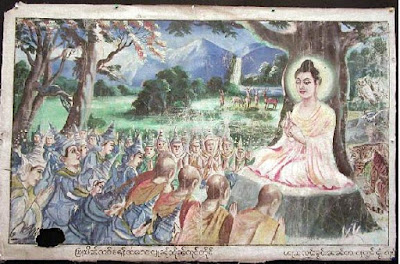From a recent Satsang by Gautum Baiji:
"How can we tell if a person is good or bad: when we see their actions, not doing things the right way.
The behavior is not good. Then we can see this person needs
some change if they want to do good.
Sometimes we change through circumstances over time, but Satsang has the power to change us now. Only by Satsang and meditation can a
person create change.
Because we don’t need to change the body. We don’t need to
change the color, the caste, or the creed.
The only thing we need to change is
our thoughts.
Because whatever thoughts we have inside… those thoughts will become
our actions. And we will be good or bad people because of our actions.
How can we change the thoughts?
Because when parents raise
their kids, they tell them this is good, or this is bad, you should do this or
that. They taught us everything. How we should eat, how we should talk. How we
should work.
But nobody taught us how to think.
Thousands of thoughts come into our mind all the time. Each
and every second the thoughts are coming and going. How do we control them?
One way is to keep good company. Then good thoughts come automatically.
That’s why we have a need, a necessity for saints.
Saints are like clouds. When the cloud comes in the heat, it brings rain
and cools everything down.
The same thing happens when the saints come into our life. They
teach us techniques, they give us knowledge. Then we practice meditation, and we change our thoughts. And when our thoughts get changed, our perspective
changes, and we can see the positive changes in our life.
Sometimes we think merely reading scripture is enough. Some
people say, “I’ve gone through the Gita, I’ve gone through Ramayana, I’ve gone
through all the scriptures…”
But have the scriptures gone through us?
If we are only reading, we become like a parrot. If we ask the meaning of Ram, the parrot can repeat the word but it doesn't know the meaning of Ram.
We chant so many mantras, we sing so many bhajans, but as
long as we don’t know who we are, as long as we don’t experience meditation,
how can we change our self and our thoughts?
If we’re sitting in the satsang, and our mind is wandering
everywhere, what happens? We didn’t get any benefit from the satsang.
But if we
let the satsang go through us, we can change our life..."


















